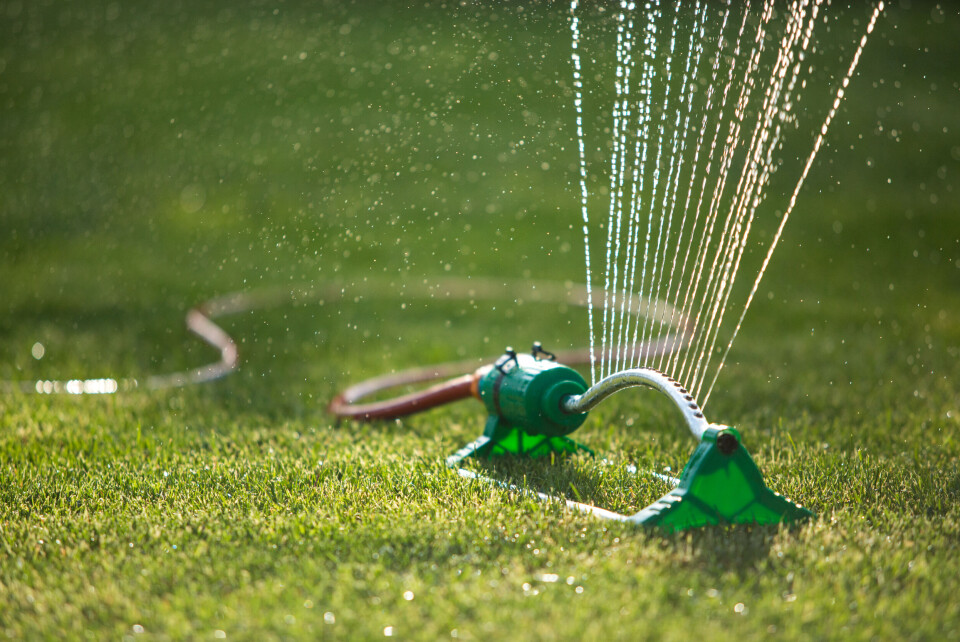-
Why your car insurance in France is expected to increase this year
Premiums are forecast to rise by four to six percent in 2026
-
Two Britons killed in avalanche in French Alps were with an instructor
French skier also died in the disaster at Val d’Isère on Friday February 13
-
British Airways launches bargain £2 flights to France (but there’s a catch)
The flights are only available to members of the airline’s Avios scheme who are redeeming loyalty points
Neighbours tell on each other as drought rules bite in southern France
Pyrénées-Orientales has been on a ‘reinforced drought alert’ since February, meaning severe restrictions on water use

An ongoing, unprecedented drought in the Pyrénées-Orientales means locals are forbidden from watering gardens, replenishing swimming pools or washing their cars.
Insufficient rain means that since February 22 the department has been on a “reinforced drought alert”, meaning water restrictions have been in place across the region, with fines of €1,500 for those breaking the rules.
Read more: Water restrictions set to launch as France faces chronic lack of rain
Read more: How bad is the drought in France? See restrictions in your department
Now the so-called water police - la police de l'eau - are circulating residential areas to ensure people are following the rules.
They are also monitoring canals and waterways to see if people are using hidden pumps and pipes to take water for their gardens and swimming pools.
But it is not just the police who are monitoring other people’s behaviour. There are increasing numbers of people reporting their neighbours for breaking the rules.
“We get calls telling us their neighbour is watering their garden, or filling their swimming pool,” Vincent Darmuzey, head of the water and risks service at the Direction départementale des territoires et de la mer in Pyrénées-Orientales, told FranceInfo.
“It's easier to call in the environmental police than to tell your neighbour that you have to save water.”
How drought is impacting Pyrénées-Orientales
The patrols come after four communes in the department had a tap water ban imposed last week. The communes affected are near Perpignan: Corbère, Corbère-les-Cabanes, Saint-Michel-de-Llotes and Bouleternère.
A record winter dry period means that 75% of groundwater is below normal levels, according to France’s geological research office, le Bureau de recherches géologiques et minières (BRGM). That is up from 58% this time last year.
The BRGM said that the “recharge period [September-March] from 2022 to 2023 was marked” by some dry periods, which explains the weak filtering of rain into deep [underwater tables], due to very dry ground.
It continued: “The end of winter 2022-2023 was marked by a severe deficit in effective water, and February 2023 was characterised by dropping levels.”
BRGM added that “the rain [had] moistened the ground and allowed vegetation to grow and establish dominance before it was able to infiltrate deeply”.
Last weekend, the department saw France’s first big wildfire of the year.
The fire, on the French-Spanish border, broke out on Sunday (April 16) in the commune of Banyuls-sur-Mer and Cerbère (Pyrénées-Orientales).
Almost 930 hectares were destroyed and four nearby homes were damaged, but no one was injured.
Read more: France’s first big wildfire of the year hits in drought-hit south
Tips on how to save water
Take a shower instead of a bath. It takes about 200 litres of water to fill a bath, but only around 75 to take a shower.
Buy an energy-saving showerhead. This could reduce water consumption by around 50% when taking a shower and can cost as little as €20.
Install water-flow reducers on taps. For a few euros, it is possible to buy flow reducers to install on kitchen and bathroom taps, which use tiny air bubbles to reduce the flow of water by up to 50% - without reducing the water pressure.
Install a low-flow toilet flusher. The average person uses 36 litres of water per day by flushing their toilet, but installing a double-push system can help reduce this.
Use your dishwasher. Surprisingly, a dishwasher uses far less water than manually washing dishes (if you leave the tap running), provided you run the dishwasher with a full load. If you do not have a dishwasher, you can save water by using two bowls (one for washing and one for rinsing dishes).
Look for leaks in pipes and appliances. A leak can cost hundreds of euros per year, as well as waste hundreds of cubic litres of water. You should regularly make sure that there are no leaks in your pipes or drips coming from your toilet or taps.
Limit how and when you water your garden. You can collect rainwater to water your garden as an alternative to using your main water supply.
Related Articles
Rules on using well water during a drought in France
Tap water ban in four villages in southern France as shortages bit
























